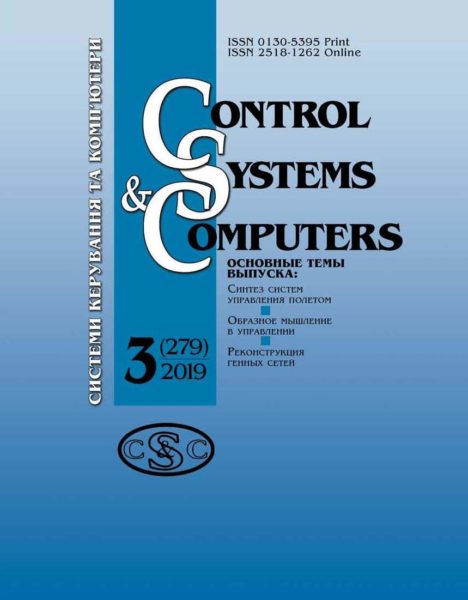Control Systems and Computers, N3, 2020, Article 6
https://doi.org/10.15407/csc.2020.03.060
Control Systems and Computers, 2020, Issue 3 (287), pp. 60-68.
UDK 004.9
H.V. KHODIAKOVA, Doctor of Philosophy in Education, Associate Professor at the Department of Computer Science and Applied Mathematics of the V.O. Sukhomlynsky Mykolaiv National University, Mykolaiv, 11 Shneerson Str., 7, khodiakovagalina@gmail.com
Information Technologies in Solving Computer Linguistics Problems
Introduction. At present, there are many scientific works devoted to computer linguistics. The problems described in them are discussed at the level of general scientific methodology. The article describes the possibilities of modern computer means for text information analysis in computer linguistics tasks and the process of solving some applied linguistic tasks at the technological level.
The purpose of this article is to describe a new technology for solving some linguistic problems by using popular online resources and using a comparative method.
Results. The article gives a review of popular online text processing and analysis services. The technology of solving the following linguistic tasks is described: semantic text analysis; calculation of text frequency characteristics; finding typological Greenberg indexes for a given language, parsing a word by composition, grammatical text analysis, building syntactic graphs.
Conclusion. The results of the solution of the considered problems can be used for other studies in the field of linguistics. In particular, a preliminary frequency analysis of words, word combinations and turns of speech is made when defining an author of the text. Semantic text analysis is used by SEO-specialists, whose work is to optimize sites for search queries. The results of calculating typological indices are needed by specialists in theoretical linguistics. Grammatical text analysis and the construction of semantic graphs are needed when creating programs, translators, as well as programs for speech recognition and automatic text input. The article is intended for linguists and specialists in the field of SEO-analysis, solving problems on analysis and text processing.
Download full text! (In Ukrainian)
Keywords: computer linguistics, computer text processing, text analysis, tasks of linguistic text analysis.
- Andrusenko, T. B., 1994. Lingvisticheskie struktury v kompyuternykh sredakh [Linguistic structures in computer environments]. Kiev, 160 p. (in Russian).
- Arapov, V., 1988. Kvantitativnaya lingvistika [Quantitative linguistics]. Moscow: Nauka, 184 p. (in Russian).
- Baranov, N., 2003. Vvedenie v prikladnuyu lingvistiku [Introduction to Applied Linguistics], Moscow, 347 p. (in Russian).
- Bolshakova, Ye.I., 2011. Avtomaticheskaya obrabotka tekstov na estestvennom yazyke i kompyuternaya lingvistika, uchebnoe posobie [Automatic Natural Language Processing and Computational Linguistics: Tutorial], MIEM, Moscow, 272 p. (in Russian).
- Voloshin, K., 2004. Kompyuterna lingvistika : navchalniy posibnik [Computer linguistics: tutorial], UnIversitetska kniga, Sumy, 381 p. (in Ukrainian).
- Gorodetskiy, Yu., 1989. Kompyuternaya lingvistika: modelirovanie yazyikovogo obscheniya [Computational linguistics: modeling language communication], Novoe v zarubezhnoy lingvistike, Moscow, 24. (in Russian).
- Marchuk, N., 2007. Kompyuternaya lingvistika [Computer linguistics], Moscow, 317 p. (in Russian).
- Pirogova, K., 2000. Reklamnyy tekst: Semiotika i lingvistika [Promotional Text: Semiotics and Linguistics], Moscow, 263 p. (in Russian).
- Hrolenko, T. Osnovy lingvokulturologii: uchebnoe posobie [Basics of linguoculturology: study guide], Flinta, Nauka, Moscow, 184 p. (in Russian).
- Shirokov, A., 2004. Fenomenolohiya leksykohrafichnykh system [Phenomenology of lexicographic systems], Naukova dumka, Kyiv, 327 p. (in Ukrainian).
- Yudin, G., 1978. Sistemnyy podkhod i printsip deyatelnosti, Nauka, Moscow. (in Russian).
- Proekt VAAL. – VAAL. [online] Available at: <http://www.vaal.ru/index.php>. [Accessed 25 Nov. 2019]. (in Russian).
Received 05.01.2020



